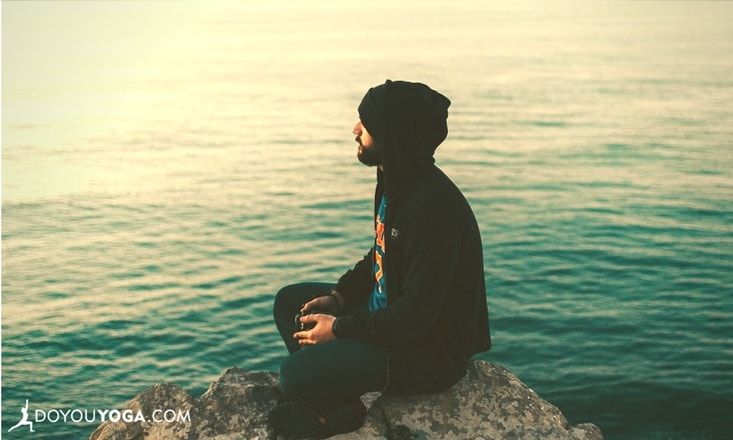Scientists are arguing that loneliness might be a more significant threat to health than obesity. A recent study, which defined loneliness as “the feeling that one is emotionally disconnected from others,” concluded that this disconnection could kill. In fact, those who felt connected to other people were 50 percent less likely to die prematurely than those who did not.
While we might think of loneliness as no more than an unfortunate emotion, scientists are starting to see it as a genuine public health crisis.
As always, yoga can help. Let’s take a look at some of the ways that yoga and meditation can help to combat the serious condition of loneliness.
1. Yoga Means Union

Yoga is a Sanskrit word that is typically translated to mean union, joining, or yoking together. What are we uniting in yoga? There are many ways to answer that question, but one possible interpretation is that yoga joins us with the rest of humanity.
Yogi Bhajan, a renowned yogi who popularized the Kundalini tradition in the US, is famous for saying, “Recognize that the other person is you.” This is the first of five sutras for the Aquarian age in the Kundalini tradition, and it communicates that through the diligent practice of yoga, we can come to realize a greater sense of oneness with our fellow humans. In this way, we understand that even when we are alone, we never need to be lonely.
2. Less Screen Time
If we’re practicing yoga, odds are we aren’t on our screens, and that’s an excellent way to combat loneliness. Emma Seppälä, Ph.D. is an expert in the psychology of happiness. She argues that social media works against our desire for happiness. In focusing on sharing the moment on social media, we actually disconnect ourselves from the experience and the people we are sharing it with. By committing to a practice of yoga, we are creating quiet space in our device-filled world.
3. Sangha

Sangha is another important Sanskrit word to reflect upon in the context of the loneliness epidemic. It translates to mean an association or community. By practicing yoga in a studio, or with other people in our homes, we can activate the power of connections.
I have sometimes teased my students that it’s time to stop their “chat-asana” at the start of class. In truth, while it’s my job to get a yoga class moving on time, I recognize that for many people, those chats before class are just as important as the postures that I teach. Practicing yoga with other people and socializing in our sanghas is a great way to combat loneliness.
4. Noticing and Naming
In many yoga classes, we begin by noticing our breath. What’s fascinating is that just by seeing our breath, without trying to change it, it changes all on its own. This is the power of attention. When we meditate, we turn our attention away from the outside world to our internal experience. We notice ourselves just as we are, without trying to change a thing. In this space, without any effort, change will happen over time.
While taking steps to mitigate the effects of persistent loneliness is important, challenging emotions are a part of life. By noticing how loneliness feels in our bodies, minds, and spirits through our meditation practice, we start the process of change. If you’re new to meditation and want to get started, check out Do You Yoga’s very own 30-day meditation challenge.
The irony of this loneliness epidemic is that because so many of us are experiencing a sense of disconnection, we can at the same time recognize that we aren’t alone in this experience. Placing our emotions into perspective is a great first step to help motivate us to make practical changes, such as reflecting on the definition of yoga, limiting screen time, attending a group yoga class, or starting a meditation practice.




